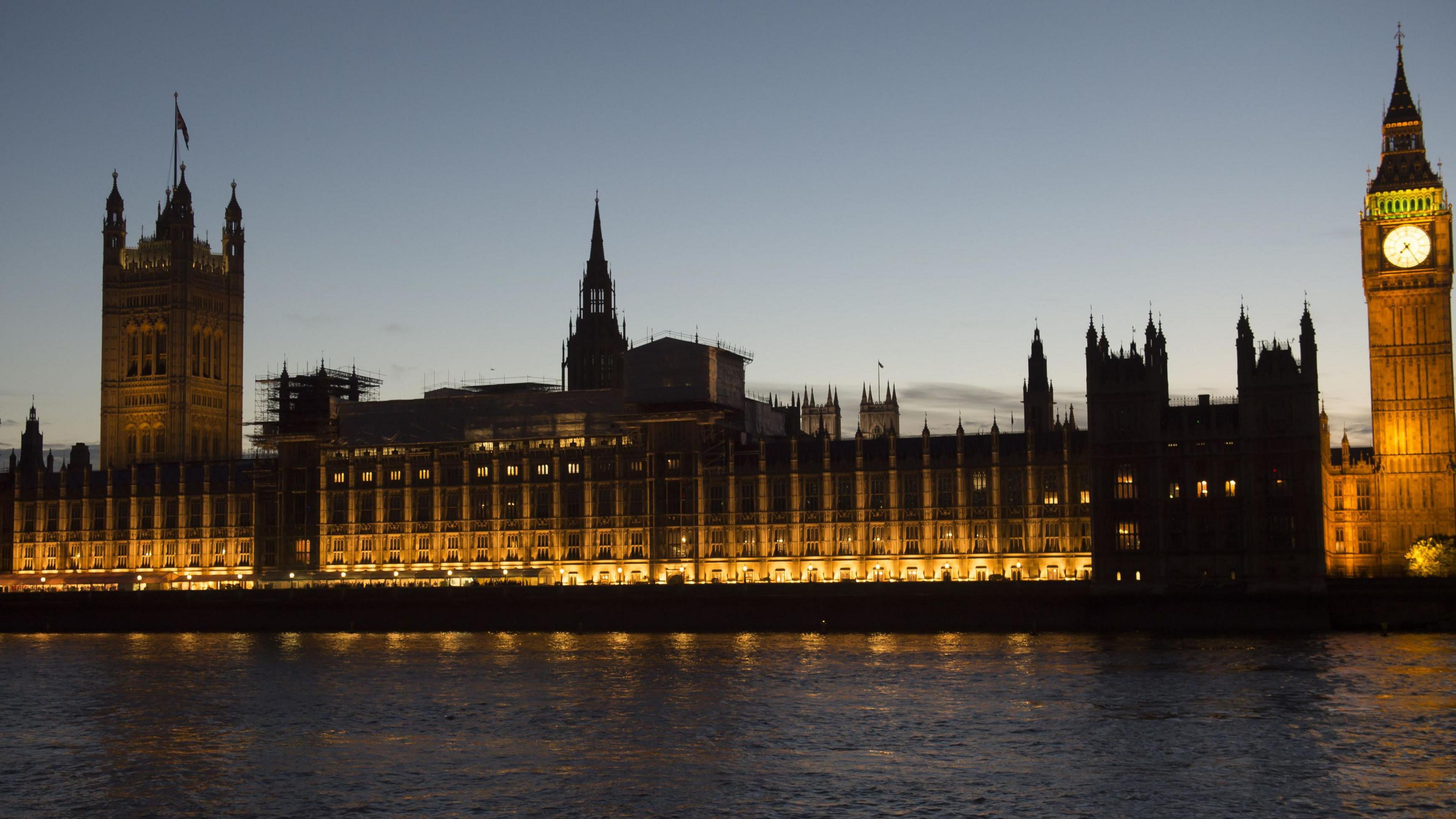Backlash over plan to ban charged MPs from Commons

- Published
The government is facing a backlash over plans to water down rules on banning MPs facing sexual misconduct allegations from Parliament.
On Monday, MPs will hold a vote on whether to exclude those who have been charged by police.
But there is concern among several MPs that the plan does not go far enough.
They are trying to force a vote to ban anyone arrested on suspicion of sexual offences.
At the moment, if MPs are accused of sexual wrongdoing, the authorities in Parliament have no power to ban them.
There have been cases where MPs have volunteered to stay away pending investigation.
Plan to ban accused MPs from Parliament diluted
- Published19 March 2024
What counts as sexual harassment at work?
- Published26 October 2024
A cross-party group of senior MPs worked on a plan, external to introduce new rules - which had been expected to ban people at the point of arrest.
But minister Penny Mordaunt instead tabled a plan focusing on those who had been charged.
A government spokesperson said the policy had been revised following "feedback" from MPs and that the new proposals would "take into consideration the detrimental impact that having no voice in Parliament can have on communities".
A group of MPs are now trying to strengthen the plans so they come into effect at the point of arrest.
Liberal Democrat MP Wendy Chamberlain, who tabled the amendment to the plan, told the BBC: "This motion isn't about the guilt or otherwise of an MP.
'Alarming'
It's about safeguarding. I think the public accept that MPs are not employees and that MPs having the ability to represent their constituents is important, but I also think that the public expects that, where possible, MPs are aligned with what happens in other workplaces.
"If a school teacher had been arrested on suspicion of rape, they would be suspended, and I believe it should be the same for MPs. That's why I've tabled amendments to return the motion to arrest rather than charge."
Labour's Jess Phillips said: "I'm very disappointed that Penny Mordant capitulated to misguided people on her side and went for charge rather than arrest.
"It's a matter of safeguarding and I'm not sure why we would have rules that others in the country don't have to live by. "
Mike Clancy, head of the Prospect trade union which represents many parliamentary staff, said “We have waited a long time for Parliament to make even a pretence at becoming a 21st century workplace where MPs have been accused of serious misbehaviour.
"It would be hugely disappointing if rather than grab this opportunity to put an appropriate policy in place, MPs instead went for the government’s watered-down version."
However, other MPs have expressed concern about suggestions colleagues could be banned at the point of arrest.
Speaking in Parliament, Conservative MP Sir Julian Lewis said it was "alarming" that an MP could be suspended "on the basis of an allegation".
"It does not require much imagination to see certain circumstances in which an MP could be targeted by someone making a serious allegation with no factual underpinning whatsoever, and then having to be suspended.
"It is astonishing, frankly, that we could be put into such a situation on so flimsy a basis."
Labour will recommend that its MPs support the arrest plan.
But the debate will not be whipped by Labour or the government, meaning MPs will be free to vote with their conscience rather than following a party line.